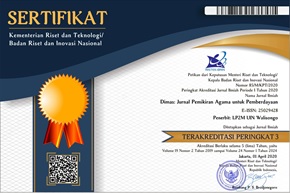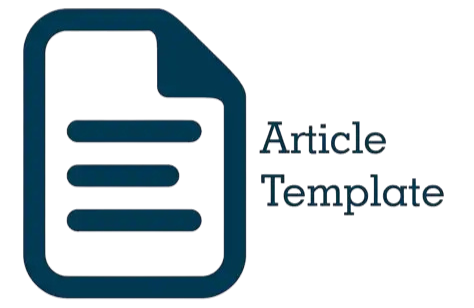Pengembangan Budaya Membaca Siswa Madrasah Ibtidaiyah di Kota Semarang
DOI:
https://doi.org/10.21580/dms.2016.161.893Keywords:
Pengembangan Budaya, Budaya Baca, Madrasah IbtidaiyahAbstract
This mentoring is motivated by a study, which shows the importance of reading skills of students in the early grades and determine their learning success in the next grade. On the basis of these reasons, then the reading culture is an alternative that can be developed school / madrasah. Based on that background, the mentoring was implemented to develop a reading culture of students in the madrasas built FITK UIN Walisongo, namely MIT Nurul Islam, MI Darul Ulum, MI Miftahul Akhlaqiyah. There are several assistance activities undertaken to develop a culture of reading, the Focus Group Discussion, MoU between the Department of MPI UIN Walisongo the MI side, the MoU with the Regional Library related to the addition of books, parenting about the growth of the reading culture of children, training-based learning literacy for teachers, and a comparative study to MIN Model Sleman, Yogyakarta.
Pendampingan ini dilatarbelakangi oleh sebuah penelitian, yang menunjukkan pentingnya kemampuan baca siswa di kelas awal dan menentukan keberhasilan belajar mereka pada kelas selanjutnya. Atas dasar alasan itulah, maka budaya baca adalah sebuah alternatif yang dapat dikembangkan sekolah/madrasah. Berdasarkan latar belakang itulah, maka pendampingan dilaksanakan untuk mengembangkan budaya baca siswa di madrasah binaan FITK UIN Walisongo, yaitu MIT Nurul Islam, MI Darul Ulum, MI Miftahul Akhlaqiyah. Terdapat beberapa kegiatan pendampingan yang dilakukan untuk mengembangkan budaya baca, yaitu Focus Group Discussion, MoU antara Jurusan MPI UIN Walisongo dengan MI dampingan, MoU dengan Perpustakaan Daerah terkait penambahan koleksi buku, parenting tentang penumbuhan budaya baca anak, pelatihan pembelajaran berbasis literasi bagi guru, dan studi banding ke MIN Model Kabupaten Sleman Yogyakarta.
Downloads
References
Darmiyati, Zuchdi. 2007. Strategi Meningkatkan Kemampuan Membaca, Yogyakarta : UNY Press, 2007.
Darmiyati,Zuchdi. 2007.StrategiMeningkatkanKemampuanMembaca.Yogyakarta : UNY Press.
Hardiningtyas, Tri. 2012PeduliPerpustakaan, Surakarta: UNS Press.
Hoy, Wayne K and Cecil G Miskel. 2008. Educational Administration: Theory, Research, and Practice. USA:McGraw-Hill.
Lunenburg, Fred C. and Allan C. Ornstein. 2004. Educational Administration: Concepts and Praktices Fourth Edition. USA:Thomson Wadsworth.
Lunenburg, Fred C.. 2011. Organizational Culture-Performance Relationships: Views of Excellence and Theory Z dalam National Forum Of Educational Administration and Supervision Journal Volume 29, Number 4, 2011
Mbulum Yoseph. 1992. Pemanfaatan Perpustakaan Sekolah Dalam Kegiatan Belajar Mengajar. Pendidikan : Majalah Fakultas Ilmu Pendidikan IKIP Malang. Edisi 1992.No.27 Th.XIX. Malang : Fakultas Ilmu Pendidikan IKIP Malang.
Nurhadi. 2008. Membaca Cepat dan Efektif (Teori dan Latihan). Bandung: Sinar Baru Algensindo.
Prasetyono, DwiSunaryo.2008. RahasiaMengajarkanGemarMembacaPadaAnakSejakDini, Yogyakarta: Think.
Rachman, Abdullah. 1985. Minat Baca Murid Sekolah Dasar di Jawa Timur. Pusat Pembinaan dan Pengembangan Bahasa. Malang : Depdikbud.
Sardiman, 2010.InteraksidanMotivasiBelajarMengajar, Jakarta: Rajawali Pers.
Shahzad, Fakhar. 2012. Impact of Organizational Culture on Organizational Performance: An Overview dalam Interdisciplinary Journal Of Contemporary Research In Business, January 2012, Vol 3, No 9
Sun, Shili. 2008. Organizational Culture and Its Themes dalam International Journal of Business and Management December, 2008
Sutarno NS. 2006. ManajemenPerpustakaan: SuatuPendekatanPraktis, Jakarta: SagungSeto.
USAID Prioritas. 2014. Praktik yang Baik di Sekolah Menengah Pertama dan Madrasah Tsanawiyah (Modul 2
Wicaksana,Galuh, BuatAnakmu Gila Membaca, Jokjakarta: BukuBiru.
Downloads
Published
Issue
Section
License
Copyright
The copyright of the received article shall be assigned to the journal as the publisher of the journal. The intended copyright includes the right to publish the article in various forms (including reprints). The journal maintains the publishing rights to the published articles. Therefore, the author must submit a statement of the Copyright Transfer Agreement.*)
Licensing

This work is licensed under a Creative Commons Attribution-ShareAlike 4.0 International License.
In line with the license, authors are allowed to share and adapt the material. In addition, the material must be given appropriate credit, provided with a link to the license, and indicated if changes were made. If authors remix, transform or build upon the material, authors must distribute their contributions under the same license as the original.
_______
*) Authors whose articles are accepted for publication will receive confirmation via email and send a Copyright Transfer Agreement.









